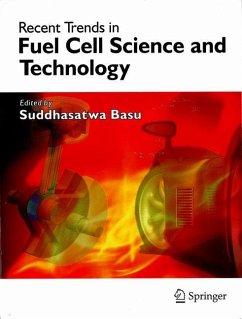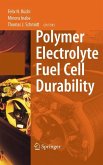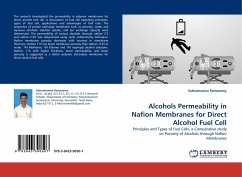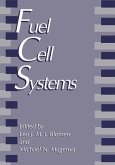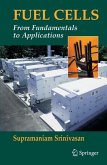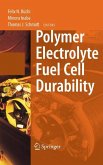Fuel cell science and technology is evolving fast for the past two decades as it is thought to be an efficient way of transforming chemical energy of hydrogen rich compounds to electrical energy. Although this idea of direct conversion of chemical energy to electrical energy was first demonstrated by Sir William Grove in 1839 using a fuel cell, it was only in the middle of the twentieth century when Bacon's pioneering work led to the use of fuel cell in space missions. The interest in commercialization of fuel cell for civilian use has caught up with government organizations and private corporations for the past decade on account of fluctuating oil prices and environmental concerns. It is well known that the conventional fossil fuel, which is a primary source of gasoline, is not going to last more than a hundred years in the face of ever-increasing demand in the developed and developing countries. Although the reserves of natural gas, coal and tar sands may last another two to three hundred years with the current rate of production, their conversion is not efficient and pollution-free. Thus, scientists all over the world have taken up fuel cell development work in their quest of solution to the energy crises looming largely on global population. This book aims to script the present status of the rapidly developing field of fuel cell science and technology.
From the reviews:
"A book describing the 'state of the art' from the perspectives of various authors appears to be an adequate and useful endeavor. As impressively introduced by the editor in the preface, the broad range of systems, subjects, and topics related to fuel cells is presented in a collection of 14 review chapters provided by respective experts in the various fields. ... The book is lavishly illustrated. ... Beyond some well-done review or overview chapters, it is making ... enhancement of any library." (Rudolf Holze, Journal of Solid State Electrochemistry, Vol. 13, 2009)
"A book describing the 'state of the art' from the perspectives of various authors appears to be an adequate and useful endeavor. As impressively introduced by the editor in the preface, the broad range of systems, subjects, and topics related to fuel cells is presented in a collection of 14 review chapters provided by respective experts in the various fields. ... The book is lavishly illustrated. ... Beyond some well-done review or overview chapters, it is making ... enhancement of any library." (Rudolf Holze, Journal of Solid State Electrochemistry, Vol. 13, 2009)

